#author: anita diamant
Text
Her name is Dinah. In the Bible, her life is only hinted at in a brief and violent detour within the more familiar chapters of the Book of Genesis that are about her father, Jacob, and his dozen sons. Told in Dinah's voice, this novel reveals the traditions and turmoils of ancient womanhood—the world of the red tent. It begins with the story of her mothers—Leah, Rachel, Zilpah, and Bilhah—the four wives of Jacob. They love Dinah and give her gifts that sustain her through a hard-working youth, a calling to midwifery, and a new home in a foreign land. Dinah's story reaches out from a remarkable period of early history and creates an intimate connection with the past. Deeply affecting, The Red Tent combines rich storytelling with a valuable achievement in modern fiction: a new view of biblical women's society.
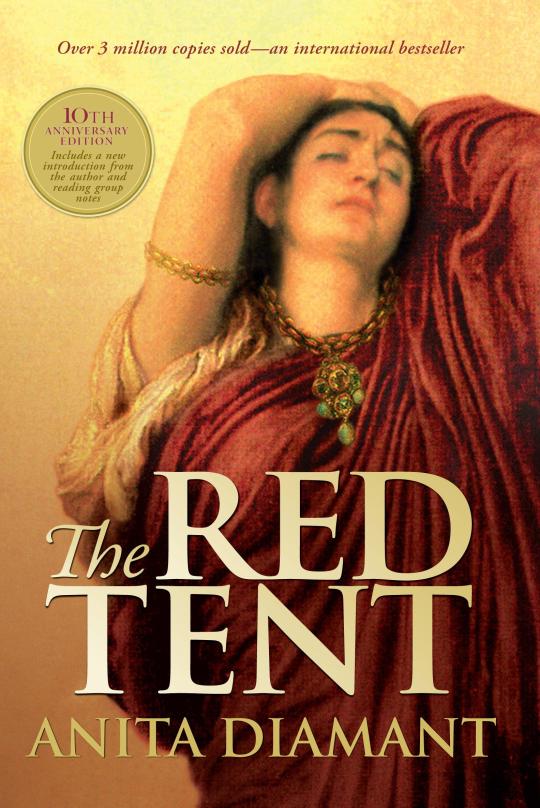
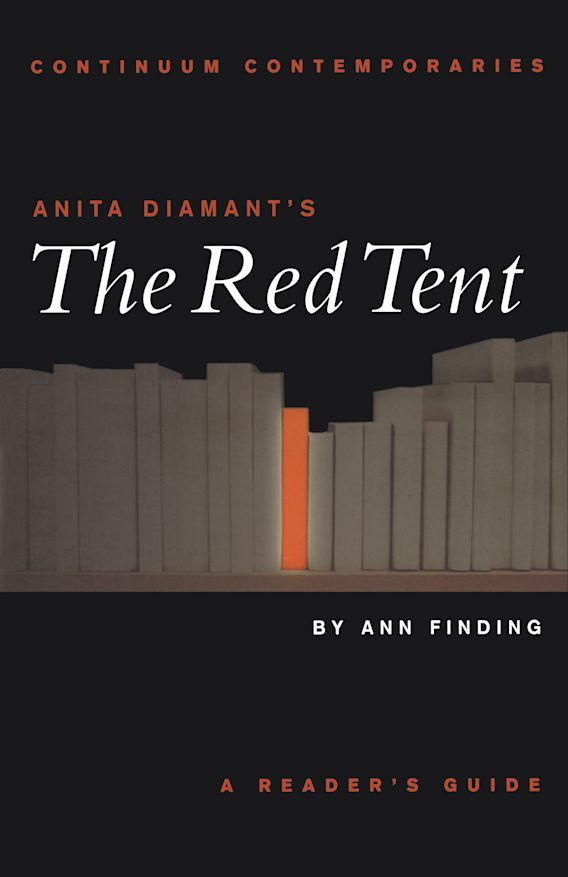
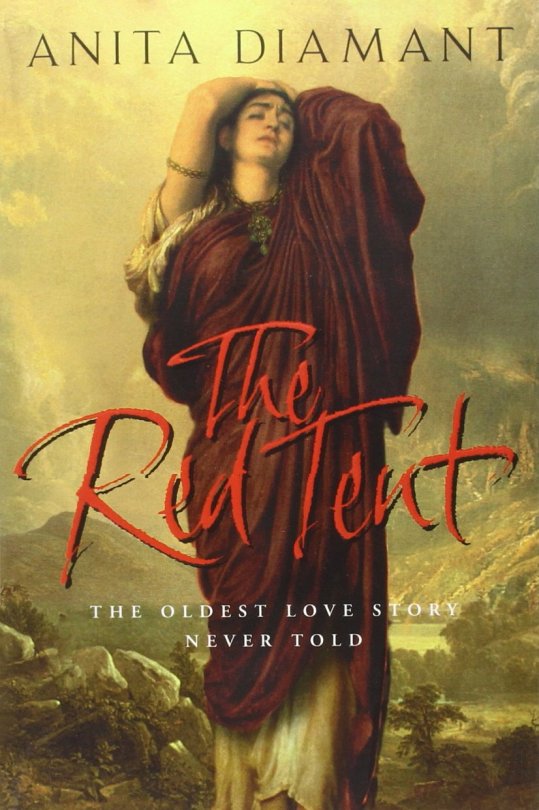
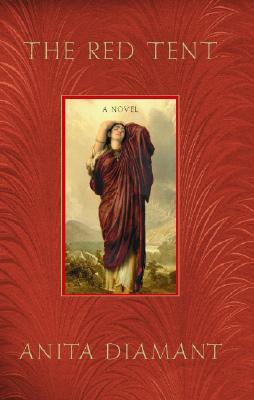
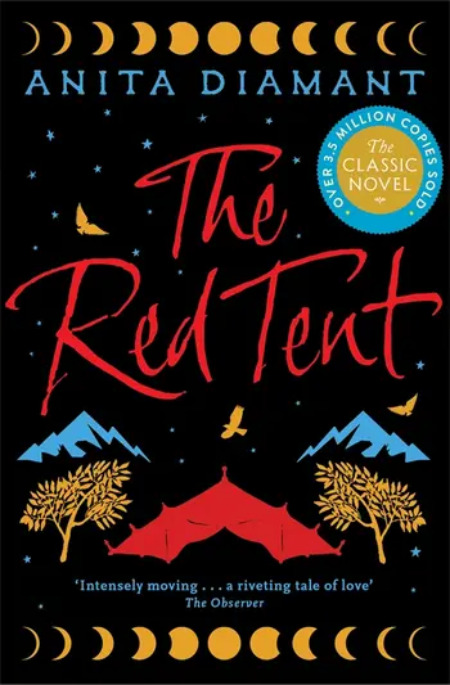
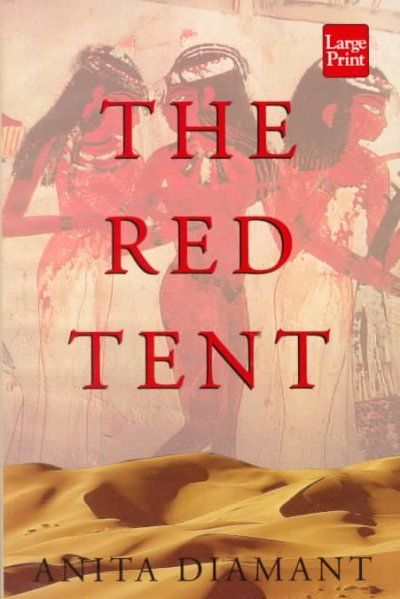
6 notes
·
View notes
Text

-
Title: Very Simple
Author: Anonymous
Prompt: Draco doesn’t think he’s ready to have children, seeing that all his friends are struggling with their newborn babies. He decides that he doesn’t like babies all that much.
And yet, just one look at Baby Harry with his parents in a photo is enough to ignite Draco’s baby fever— he strongly feels the urge to duplicate more little Potters inside his own body.
Word Count: 9.9 k
Rating: Explicit [NC-17]
Contains: Magical Pregnancy, Dirty Talk, Anal Sex, Breeding, Marriage, Weddings, Wedding Night, Miscommunication, Pregnant Sex
Spoilers: No Spoilers Marked.
Who is pregnant: Draco
Notes:
Title from an Anita Diamant quote. Thanks to A for the enthusiastic and supportive beta read!!
Summary:
Draco doesn't mean to keep the whole thing from Harry. It's just that he still forgets, sometimes, that Harry was raised by Muggles, which means he may not know that there are ways for men to get pregnant in the Wixen world.
Oops?
Very Simple
Disclaimer: Harry Potter characters are the property of J.K. Rowling and Bloomsbury/Scholastic. No profit is being made, and no copyright infringement is intended.
#2024 hdmpregfest#2024 HD MPREG Fest#hdmpreg fest#drarry#mpreg#drarry mpreg#drarry fic#fic length: 7.5k-10k#pregnant!Draco
30 notes
·
View notes
Note
I hope this counts as a positive Judaism ask, but if it’s not, or if it is too many spoons, I apologise ahead of time.
I was wondering if you had any favourite books that about Judaism or Jewish philosophy from before you converted? I would like to expand my knowledge (I don’t expect you to “educate” me, I promise!).
I know the best method would be for me to get in contact with local Jewish communities, but due to circumstance, that preferable avenue is not open to me at this time.
So if you happened to have a favourite book or author that you enjoy a lot, and feel comfortable about sharing I would be really grateful!
If not, you have my deepest apologies. I know you’ve had to deal with a lot of bullshit lately and I in no way would ever want to increase that for you. I also want to be a better ally to Jews despite being a weak atheist.
Essential Judaism by George Robinson
Choosing a Jewish Life by Anita Diamant
Here All Along by Sara Hurwitz
The Jewish Approach to God, A Brief Introduction for Christians by Rabbi Neil Gillman
To Life! A Celebration of Jewish Being and Thinking by Harold Kushner
Becoming a Jew by Rabbi Maurice Lamm
40 notes
·
View notes
Note
what're your favourite books or novels? or do you have a favourite author?
Oh this is actually a very sweet question, I should probably consider this more often as a writer lol. Since my job is editing books, I don't read for recreation as much as I might like. Anyway, I don't know if I'd quite call the following books "suggestions," since everyone has different taste, but they are books that I enjoyed and they helped to shape the way I write and think about writing:
A Gentleman in Moscow by Amor Towles
A Prayer for Owen Meany by John Irving
Holes by Louis Sachar
Lady Tan's Circle of Women by Lisa See
Pride and Prejudice by Jane Austen (the only book by her I've managed to get myself to finish so far, but it's perfection)
The Red Tent by Anita Diamant
The Remains of the Day by Kazuo Ishiguro (alert: butler book. It's also where I got the idea for Alexis to try and give Ciel "the talk" in Coattails)
The Tale of Desperaux by Kate DiCamillo
To Kill a Mockingbird by Harper Lee
Winterdance by Gary Paulsen
#asks#thanks for the question!#I get the feeling I must be forgetting something I really like but I can't think of it off the top of my head#a lot of elementary school-age children's books I didn't list influenced me too honestly#reading should not be a slog and children's book authors understand that better than any other type of authors#(but I still don't really read kids' books that much either)
19 notes
·
View notes
Text
April Reading Recap
so apparently I read a fuckton in April. I put that on the week off for Passover and also a number of very fast reads last month. here goes
The Spite House by Johnny Compton. Might be the best horror book I'd read in a while, and I did not see the twist coming for a long while. Good and very spooky on the whole, but the "creepy kids as ghosts" thing took some of the luster off it. Still, some good and original ideas here and I'll be watching for more books by this author.
The Nine Eyes of Lucien by Madeleine Roux. Not very good writing and a good third of the book was rehashing the events of the end of Campaign 2, which I just watched. It was fine, I guess? But I didn't find it added much.
The Red Tent by Anita Diamant. I've had this one on my list for literal years - it's a retelling of the Biblical story of Dinah, Jacob's one daughter. I kind of wish I'd read it sooner, when (a) I was less burned out on retellings/reinterpretations of familiar stories, and (b) when I would've been less bothered by the flavor of gender essentialism of the text and could have appreciated other things about it without getting stuck in feeling iffy about that. I am trying to work out why it bothers me so much that Diamant chose to change the reading of the text from (an implied) rape to a consensual love affair, and I'm not quite sure I can explain that.
It's an interesting book and I'm glad I read it but I don't think I'd recommend it without disclaimers; I think in some ways it's more interesting as an artifact of the cultural movement it comes out of than anything else. Would analyze in a class about Jewish feminist responses to stories in Tanakh (or Talmud, tbh).
Six Myths of Our Time: Little Angels, Little Monsters, Beautiful Beasts and More by Marina Warner. Fascinating collection of short essays originally given as lectures on the BBC, apparently - the one essay about the way the West conceptualizes the simultaneous purity/monstrosity of children was particularly interesting to me. Interesting piece of work I picked up totally by happenstance because it was short and looked interesting and it lived up to both qualities.
Gallows Hill by Darcy Coates. Good spooky horror recommended by @cigaretteburnslikefairylights and actually legit scared me in places, which doesn't happen all that often to me anymore when I'm reading horror. (I'm still a weenie watching it.) I actually...liked this one start to resolution and am going to be looking up more of Darcy Coates' writing, because if it's not, you know, doing something super ~innovative~ it is good spooky reading and that's really what I've been craving.
Krakatoa: The Day the World Exploded by Simon Winchester. Reading this book was a weird experience. I went into it just thinking "ooh, book about an interesting natural disaster, I love volcanoes" and came out of it going "whoa, surprise Islamophobia," checked the publication date, and learned it was 2003, whereupon I was miserably unsurprised. I don't know why the author felt like he needed to make colonial apologetics and blame the post-eruption upheaval on Islamic fundamentalists manipulating the natives into uprising against their Dutch masters but apparently he did. (I'm exaggerating. But not that much.)
The geology stuff was interesting. Mr. Winchester should've stuck with that and the reportage of the eruption itself and left politics out of it.
Violent Phenomena: 21 Essays on Translation ed. by Kavita Bhanot & Jeremy Tiang. This might be my favorite book I read in April, honestly. It's a really good collection of essays about the concept of decolonizing translation, and what that means, and whether it's possible, and the uneasy and uncomfortable relationship between translation and imperialism. I didn't agree with all the essays in here, and they didn't necessarily all agree with each other, but all of them at least had something interesting to say. I would recommend this one to people who can find it - it's by a small press - who are interested in translation or who frequently read in translation. The writers have a lot to say that I think is worth thinking about.
She Is a Haunting by Trang Thahn Tran. I think I just need to give up reading YA books with the realization they're generally not for me, though this one almost had me. It's something about the...I know there's a range of styles, I can't generalize style across the genre, but there is a texture to YA writing that doesn't quite work for me.
I love the concept - diaspora horror, colonialist horror, some really fucked up body horror stuff that got surprisingly gruesome - and would love to read a slightly different book about it, but alas, that book wasn't this one.
American Midnight: Democracy's Forgotten Crisis, 1917-1921 by Adam Hochschild. Another contender for favorite book I read this month though I think this one loses out to Violent Phenomena and possibly Gallows Hill, though comparing horror fiction to historical nonfiction feels kind of unfair. Anyway, I knew some of what this book was digging into - the Sedition Act and the intensely violent repression that was going on in the United States during World War I - but I learned a lot more here.
The depressing thing about reading this, though, was watching (so to speak) the brutal crushing of a once fairly robust American Socialist Party such that it never recovered. Not to mention the grinding down of the labor movement, which I think was at its most powerful during this period of time and hasn't been as strong since.
Just looking at that and wondering what might've been if Woodrow Wilson wasn't such a fucking dick.
Elektra by Jennifer Saint. I feel so funny about this book. I read another mythology retelling even though I swore not to because a Tumblr user I respect mentioned it being good; my experience was that it wasn't bad and it didn't actively bother me like some other retellings I could name, but I don't know that I'd actually call it good. Mostly I'd say I wasn't annoyed, just uninspired.
Of the three narrators, Elektra was definitely the best, and I really did like the construction of her relationship with Clytemnestra, which really felt like the meat of the book. (Perhaps, considering the House of Atreus, that's a bad turn of phrase to use.) The Cassandra sections felt like a distraction, mostly a way to keep the reader up with what was going on across the sea and provide some action in between the familial drama. Ultimately I just felt like those sections took away from the Elektra/Clytemnestra dynamic, leaving insufficient meat.
Fuzz: When Nature Breaks the Law by Mary Roach. I went through a period of time where I was reading all of Mary Roach's books, and was kind of obsessed with them, so this was sort of returning to an old and familiar friend. I found I wasn't quite as enamored with this one as I remembered being of some of her others (I think I remember Stiff being my favorite), but it was an interesting look at the intersections between human and animal - which is really more what this is about than law, per se. It's about what we do when animals cause problems for humans, from monkeys to bears, and the questions that are raised about the best way to handle those issues.
Nero: Matricide, Music, and Murder in Imperial Rome by Anthony Everitt & Roddy Ashworth. I'm so confused by this book. From the insistence on referring to Nero as "princeps" throughout the book, to the random dropping of French in places it really didn't need to be, to the frankly credulous approach to the sources, particularly when it comes to sex, even when the author mentioned how sex is often a proxy for politics in Roman historical writing, the weird sideways digression into "did Rome have gay marriage?", the weird "maybe she got what she deserved" aside about Messalina's death...
I learned a fair amount, I can say that, I'm not as knowledgeable about this period's Julio-Claudians. Frankly I think Agrippina (the Younger) was the real star of this book, despite Anthony Everitt's heroic efforts to make Nero the protagonist. Buddy, I see your point, but you're pushing a little too hard here.
Anyway. Weird reading experience, I'm tempted to recommend it just so someone else can either validate it or go "what are you talking about, this was a perfectly normal history book."
---
woof long post, but hey it was a lot of books. currently reading A Fever in the Heartland for more American racism in the early 20th century. I have a stack of library books that are waiting for me and I think the next one is probably going to be The Social Lives of Animals, which will either be really enjoyable or annoy the hell out of me, possibly both.
33 notes
·
View notes
Text
I hate it when my fandom is a small niche because no one will care about my rant ahead lol. I am a fan of The Red Tent (The show and the book by Anita Diamant) and I go on Tumblr to find content on it. Long story short I find lovely gifs of the show with Rebecca Ferguson, quotes of the book and such, but unfortunately no metas or fics or people gushing about the story and the characters, which was sadly to be expected. The only thing I find is someone complaining about how the show changed the ending to make it more hopeful, about forgiveness, etc. And I am like, bitch, the show is a whitewashing-of-middle-eastern-characters-mess, it was not as detailed as the book, it was too short and could have done more with the content, the actors are unbelievably and stupidly old for their ages (Especially Dinah in the first episode, Rebecca is beautiful but there is no way I can suspend my disbelief and pretend she is a lovesick teenager, why the hell didn't they use two actresses for her? The passage of time in the show was perfect for that), and so on, but you know what what good about it? (Other than the costumes and the settings of course)
It fixed the bookʼs crappy ending. There, I said it. I don't care how supposedly “deep” it is, or being told I just don't get it. It is just my truth and you are free to disagree.
You see, when I got to the end of the book I was met by a very depressing and dull experience where Dinah suddenly stopped loving all of her brothers, even Joseph, despite the fact they were breadfed together and each other's best friends growing up. I get her hatred and unforgiving attitude towards Simon and Levi and even the rest of the older brothers, but Joseph? Who had nothing to do with the massacre other than a comment he didn't seriously mean and was around her age when it happened? The author just wanted to shock the readers at this point.
What is more, in the show it could have been understandable for Dinah to be ambivalent towards Joseph, since he tried to get her son killed for almost assassinating him, but in the book it is actually Joseph who spares his life and sends him away instead without ANY coercion from Dinah. Dinah just continues to hate him in the book for no reason because he is part of her past and she wants to forget her past and his existence took her son away from her even though that was literally 100% the sonʼs fault for trying to kill a literal statesman out of revenge with WITNESSES around without learning the full story of what happened to his father, who was killed by Simon and Levi only and not all of Dinahʼs brothers lol
lmao It just makes Dinah come out as heartless and cruel, especially considering she gets some second hand account about how much Joseph supposedly suffered as a slave, which, because this takes creative liberties (Which I am 100% fine with btw), is an even greater amount of suffering than implied in the Bible (He is said to have been beaten and raped by his masters or the slave traders before getting to Potiphar in this book, which actually makes sense, him being a slave and this being ancient times and all, and Potiphar is also a creep). But nope, there is no talk of how both siblings have suffered, Joseph as a slave, and Dinah since the loss of her husband and forced separation from her child. They just become strangers, which is frustrating and unsatisfactory. No emotional reunion in the book as there is in the show (Which has a brilliant scene where they meet again that is very satisfying).
The book also has to make all the male characters heatless monsters incapable of remorse or idiots to make Dinah, her son, and her love interests shine (They literally make Joseph an illiterate fool to make Dinahʼs son shine as the “power or intellect behind the power” or whatever, like, this isn't even about uplifting women because this is Dinahʼs son, not Dinah herself, this is pretty much just about making Dinah the only competent or admirable child of Jacob, it is so blatant and annoying it reminds me of Disneyʼs Maleficent idea of telling a complex story and giving voice to voiceless characters, meaning flipping everything around and thinking that does the job) . The show doesn't do this and yet Dinah comes across as a very competent woman, a brilliant midwife, just as she is in he books. She is unquestionably the main character in the show and yet we also get glimpses of Joseph being a learned man, no character assassination needed. You don't have to pick on Joseph, who most imagine to have been learned and literate at some point in his life besides having the prophetic dreams (which makes SENSE even if it is not in the Bible, he was given a position of power for a reason), to make me admire Dinahʼs character.
The end of the show makes Dinah bond with her brother and gives you the impression they stay good friends even if she can't make herself to do the same with her other brothers. This, along with her relationship with Benia, is a huge triumph after so much suffering, a true happy ending, I can see the two of them playing with their children and having meals together. She forgives her father because Joseph forgave her son for trying to kill him, it is lovely, it is a lovely message, and her forgiving her father ties to the original message of the story, paralleling with Joseph forgiving his brothers. Forgiveness doesn't lower Dinah down or have to mean she thinks what her father did was right. It doesn't mean she has to spend time with the people who hurt her. It just means she lets go of the anger. Can this message be annoying for some people who are pressured by society to forgive their abusers? Yes, but in fiction it is better this way because unless the plot is about revenge, forgiveness gives the story closure and meaning, and because the book set the story up to a final encounter with her family, Dinah being as indifferent makes the ending anticlimactic.
In the book, Dinah returning to her homeland is almost there for no reason (I liked her meeting the new generation in her family and learning of the women and girls, granddaughters of her mothers, who are always forgotten, but other than that? Pointless). She doesn't speak to her father or brothers even to ask them why they did what they did or be angry (which was an alternative to the forgiveness arc if your truly hate it that much), she doesn't speak to Joseph either because “muh my past I hate muh past and he sent my son who tried to kill him away”. There is straight up NO REASON FOR HER TO BE THERE. I hate the ending so much it is unbelievable.
So no, random person who is probably among the few to feel strongly about this show/book. The show ending is awesome and way better than the book ending (imo, I have nothing against you random person). Thank you for coming to my niche fandom ted talk.
12 notes
·
View notes
Text
Family (The Boston Girl)
Addie loved being surrounded by her family. Her daughters worried too much about her health (she was getting old but really she was fine.) and she missed her husband but it was good to have the kids and grandkids here.
They'd all accomplished so much and they had busy lives but everyone managed to come back for the holidays. Hanukkah may not be the most important holiday but it still mattered to Addie after everything she lived through. She knew Ava understood, too. Ava lit the candles this year and Addie smiled. A rabbi, her granddaughter. She was so proud!
Created for day 2 of @aimmyarrowshigh Hanukkah Bingo
Fic or Art/Graphic Title: Family
Author/Artist Name: bugsandcoffee
Fandom: The Boston Girl - Anita Diamant
Jewish or Jew-Ish Character(s): Addie Baum, Ava Miller, Addie Baum's family
Bingo Squares Being Filled: N2 - Family
Rating: General
Warning(s): None
Link to Work: https://archiveofourown.org/works/43705908
7 notes
·
View notes
Text
tagged by @ravenkings 😘 (godspeed grading those last few papers)
nickname: none
sign: capricorn
height: 5′4
last thing i googled: post.news (just got approved to join the beta version!)
song stuck in my head: nothing at the moment, but three songs i’ve had on repeat lately are “mr. badman” by cruel youth, “anti-hero” by taylor swift, and “now i’m in it” by haim
number of followers: 339
amount of sleep: probably around 6 hours
lucky number: 47
dream job: i’d like to work in a museum/library/archive and do some writing on the side
wearing: green turtleneck and brown leggings
movies/books that summarize me
(i’m just gonna go nuts here and list all my faves, sorry)
books:
the red tent by anita diamant
the dovekeepers by alice hoffman
the book of longings by sue monk kidd
the dream of scipio by iain pears
the winter people by jennifer mcmahon
the bear and the nightingale by katherine arden
the legend of holly claus by brittney ryan
inkheart by cornelia funke
song of the sparrow by lisa ann-sandell
fire bringer by david clement-davies
island of ghosts by gillian bradshaw
movies:
the red tent (2014)
ready or not (2019)
troll (2022)
you won’t be alone (2022)
only lovers left alive (2013)
agora (2009)
amazing grace (2006)
one night with the king (2004)
o brother where art thou (2000)
the last king (2016)
the physician (2013)
the patriot (2000)
the alamo (2004)
favorite song: literally no way i could pick
favorite instrument: honestly, the synthesizer <--- same i think
aesthetic: bohemian mixed with like...office casual. my mom says i have a “classic” style, whatever that means
favorite author: jennifer mcmahon
favorite animal noise: no idea
random: looking forward to streaming the invitation (2022) on christmas eve 👀
tagging @a-hulder and @blood-and-bile
3 notes
·
View notes
Text
Episode 160: Biographical Fiction & Fictional Biographies
This episode we’re talking about Biographical Fiction & Fictional Biographies! We talk about metafiction, superhero origins as cover songs, spaceship detectives, cat biographies, amendments to amendments, alien abductions, and more!
You can download the podcast directly, find it on Libsyn, or get it through Apple Podcasts, Stitcher, Google Podcasts, or your favourite podcast delivery system.
In this episode
Anna Ferri | Meghan Whyte | Matthew Murray | Jam Edwards
Things We Read (or tried to…)
Nat Tate: An American Artist: 1928-1960 by William Boyd
Wikipedia
Maigret's Memoirs by Georges Simenon, translated by Howard Curtis
Matthew was wrong about how many books in this series came out in one month, but based on the French Wikipedia article four titles (including this one) were released in 1951.
Confessions of the Fox by Jordy Rosenberg
Jack Sheppard (Wikipedia)
The Dreamer by Pam Muñoz Ryan and Peter Sís
Orlando: A Biography by Virginia Woolf (Wikipedia)
Summertime by J.M. Coetzee
Other Media We Mentioned
Oscar Wilde Murder Mysteries Series by Gyles Brandreth
Girl with a Pearl Earring by Tracy Chevalier
Wolf Hall by Hilary Mantel
Doc Savage: His Apocalyptic Life by Philip José Farmer
What Is the What by Dave Eggers
Moll Flanders by Daniel Defoe (Wikipedia)
Blonde (2022 film) (Wikipedia)
Blonde by Joyce Carol Oates
Smile (2022 film) (Wikipedia)
Bastard Out of Carolina by Dorothy Allison
The Limits of Autobiography: Trauma, Testimony, Theory by Leigh Gilmore
The Sot-Weed Factor by John Barth
The Red Tent by Anita Diamant
Summer Fun by Jeanne Thornton
Mrs Dalloway by Virginia Woolf (Wikipedia)
A Field Guide to the Aliens of Star Trek: The Next Generation by Joshua Chapman (zine series)
We can’t find a good link for the zines, but it’s been collected as a book
Interview with the Vampire (film) (Wikipedia)
A Canticle for Leibowitz by Walter M. Miller Jr.
The Big Lebowski (Wikipedia)
Lamb: The Gospel According to Biff, Christ's Childhood Pal by Christopher Moore
Links, Articles, and Things
Episode 143 - Amish Romance
Episode 119 - Regence Romance
Episode 094 - Chick Lit Romance
Episode 070 - Erotic Romance
The 7 Best Library Podcasts
Fictionalized biography (Encyclopædia Britannica)
Autofiction (Wikipedia)
Isekai (Wikipedia)
Oliver Cromwell (Wikipedia)
Epistolary novel (Wikipedia)
Episode 111 - Happy Birthday Dracula
Episode 128 - Plucky Kid Detective
Episode 136 - Hearts of Magic: Threads Entangled
List of biblical figures identified in extra-biblical sources (Wikipedia)
List of Dewey Decimal classes (Wikipedia)
National Library of Medicine classification (Wikipedia)
Zaphod Beeblebrox (Wikipedia)
“Vell, Zaphod’s just zis guy, you know?”
False memory: Mandela Effect (Wikipedia)
17 Fictional Biographies books by BIPOC (Black, Indigenous, & People of Colour) Authors
Every month Book Club for Masochists: A Readers’ Advisory Podcasts chooses a genre at random and we read and discuss books from that genre. We also put together book lists for each episode/genre that feature works by BIPOC (Black, Indigenous, & People of Colour) authors. All of the lists can be found here.
Carolina Built by Kianna Alexander
Clotel: or, The President's Daughter by William Wells Brown
Pocahontas by Joseph Bruchac
American Woman by Susan Choi
The Black Rose by Tananarive Due
The Reason for Crows: A Story of Kateri Tekakwitha by Diane Glancy
Stone Heart: A Novel of Sacajawea by Diane Glancy
Driving the King by Ravi Howard
Delayed Rays of a Star by Amanda Lee Koe
Leo Africanus by Amin Maalouf, translated by Peter Sluglett
Empress Orchid by Anchee Min
Dancing in the Dark by Caryl Phillips
Douglass' Women by Jewell Parker Rhodes
I the Supreme by Augusto Roa Bastos, translated by Helen Lane
Empress by Shan Sa
The Book of Salt by Monique Truong
Black Cloud Rising by David Wright Faladé
Give us feedback!
Fill out the form to ask for a recommendation or suggest a genre or title for us to read!
Check out our Tumblr, follow us on Twitter or Instagram, join our Facebook Group, or send us an email!
Join us again on Tuesday, October 18th for our SpoooooOOOoooky Halloween episode we’ll be talking about the concept of Hate Reads!
Then on Tuesday, November 1st we’ll be discussing the genre of Investigative Journalism!
6 notes
·
View notes
Note
So seeing as how you are an English major I wanted to ask you if you know any classic literature with polyamorous characters. I'd just assume that the authors were writing in an era that wasn't quite so conservative back then and there would be some novels.
I'll try to answer this question, but I am not NOW an English major. I was an English major in the 80s and 90s, so my memory may not be that great.
If you're speaking of "classic literature," that pretty much mean ancient Greek and Roman. I am, alas, not an expert on Classic Literature. They definitely had different ideas of sexuality although I'm not sure polyamory is part of their thing. It might be. I'm just not sure. The instances of multiple partners I recall seem to be looked at as cheating or "wandering" a la Zeus or Odysseus.
If by classic literature you just mean old and standing the test of time, anything from idk Shakespeare to F. Scott Fitzgerald, I think you have a wrong idea about the relative conservative nature of the past compared to the present.
Unless you're talking about the twentieth century where western society (which I speak of specifically because that's the only one i know well enough to speak of,) has been expanding the boundaries of what we think of as normal or acceptable. We've had a recent swerve towards conservativism in our literature, especially in regard to sex, I think. And by recent, I'm talking, oh in the last twenty years.
I think that is a REACTION to the loosening strictures of the twentieth century.
But even so, I think there's more polyam literature NOW than there was in the past. I didn't know of any, tbh. I did a little googling... actually a lot of googling because it was hard to find. Apparently the Old Testament has quite a lot of polyamory, if that's what you meant by classic. But I think it's probably more about polygamy, men with many wives, which was a lot more normal in ancient times and in other cultures. I did find The Red Tent, which is based on the bible, by Anita Diamant.
For a more modern take on polyamory, most of it seems to be contemporary. You MIGHT be able to read Henry and June, by Anais Nin as polyamory. Or find it in her journals, but it's not out there and open. It's hidden. And there's a reason for that. Because it was not accepted. I do happen to know that the creator of Wonder Woman was polyamorous, and he based his famous superhero on his partners. There's a movie about that. Professor Marston and the Wonder Women. I haven't seen it. But, again, as with Anais Nin, it's hidden.
I think there's some science fiction out there? Robert Heinlein apparently had heavy polyam leanings. I'm not sure. I got this from google. Most of the stuff I found in google was from the last ten, twenty years.
I'm really curious about your question. What in the world make you think literature about polyamory was more common in earlier times? I mean, unless you're thinking the bible? I mean, western society is prettty heavily based on traditional marriage and family, meaning one man, one woman and their children. And people have gotten a LOT of flack for not abiding by those expectation. However, it has relaxed in the last oh, hundred years or so, very slowly until, idk, within my lifetime. Since Stonewall? After the AIDS crisis? When we started getting more representation of LGBTQ+ people in the media? 90s, 00s 10s and 20s. I don't think you're counting that as classic literature, but that's where most of what you're looking for is found.
You should google it. There is not a lot and as I'm not an expert I can't just pull the few resources out of my head.
1 note
·
View note
Text
2023 Reading Outcomes
Goal: 52 books in 2023. Repeats don’t count, romance novels don’t count. Half nonfiction. Let’s get back into the habit again.
Result: 31 books, of which 12 were non-fiction. Almost half! Better than I've done yet.
Your Letter. A heartwarming webtoon. School, bullying, friendship, and scav hunts.
Invisible Women, by Caroline Criado Perez. Shocking and infuriating deep dive into the absence of women and data about women in so many aspects of our lives
Period. End of sentence. By Anita Diamant. My first completed audiobook.
Feminist city, by Leslie Kern. Another audiobook! This seems to be the way forward for nonfiction.
In Defence of Food, by Michael Pollan. The industrialised food system is atrocious. Need to eat less processed food. 5 ingredients or less in the label.
The Jaguar Smile: A Nicaraguan Journey, by Salman Rushdie. Not well narrated, the British accented voice butchers both the Spanish and Hindi words peppered throughout
Shadow. Fun quick WEBTOON about the cleanup team behind superheroes and supervillains
At Home In The World, by Tsh Oxenreider. Romantic, poetic, descriptive yet introspective. But in the end it was a tale of a nice white Christian American whose favourite places are in Europe, and moved her family back to Texas to be near their friends and family. Would be great to read some travel writing by authors raised in the Global South.
The Art of Gathering, by Priya Parker. So timely, I took a lot of notes for the upcoming member event I am hosting for work. Can do a lot more to be a thoughtful host in my personal life in the future as well.
The Emotional Load, by Emma. Comic strip from the world famous artist, expounding further on the topic.
Terrier, by Tamora Pierce
Bloodhound, by Tamora Pierce
Mastiff, by Tamora Pierce
Neglected Poems, by Gulzar. Lovely collection. Chit of sunlight tossed under the door.
Priceless, by Shannon Mayer
Immune, by Shannon Mayer
Raising Innocence, by Shannon Mayer
Shadowed Threads, by Shannon Mayer
Blind Salvage, by Shannon Mayer
Tracker, by Shannon Mayer
Veiled Threat, by Shannon Mayer
Wounded, by Shannon Mayer
Rising Darkness, by Shannon Mayer
Blood of the Lost, by Shannon Mayer. Series that started strong but got quite tedious in the second half.
Red, White, and Royal Blue, by Casey McQuiston
Emotional Labor, by Rose Hackman.
Ethics in the Real World, by Peter Singer
The Courage to be Disliked, by Fumitake Koga and Ichiro Kishimi. In the form of a dialogue between a philosopher and a skepticak student, an eye-opening look at the Adlerian school of thought, which provides more agency than our Fruedian way of thinking today.
Beyond Guilt Trips by Anu Taranath. How to be a more thoughtful traveller.
Ducks, 2 years in the oil sands, by Katie Beaton. Blueish gray comic about a depressing stressful and violent period of her life in Alberta.
An Ocean of Minutes, by Thea Lim.
0 notes
Text
Book Review: The Red Tent by Anita Diamant
The Red Tent
The Red Tent
Anita DiamantMy rating:5 of 5 stars
KindleBible Primer
Historically accurate and Biblically correct, this story fleshed out early history in Egypt and Canaan. Never one to flinch, the author pulls no punches for anybody.View all my reviews.
Amazon
In this modern classic interpretation of the biblical story of Dinah, Anita Diamant imagines the traditions and turmoils of…
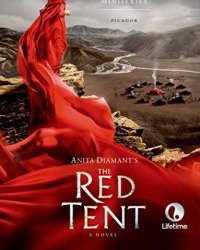
View On WordPress
0 notes
Text
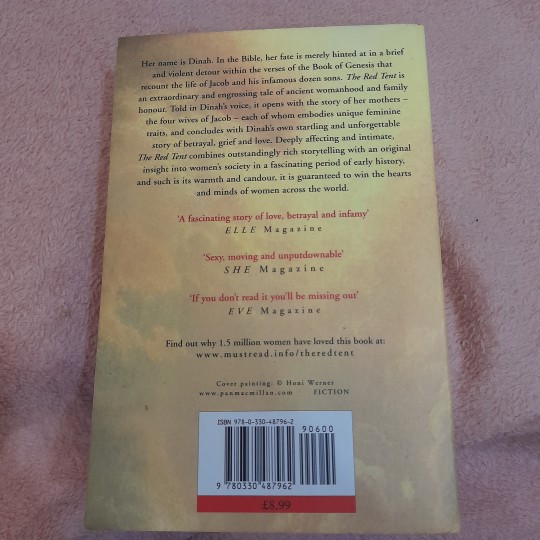
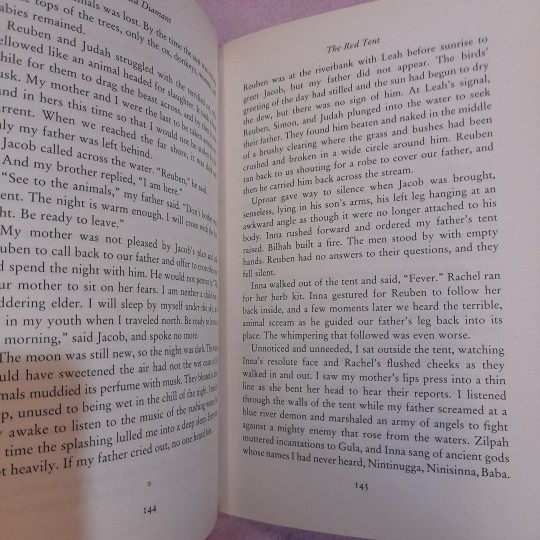
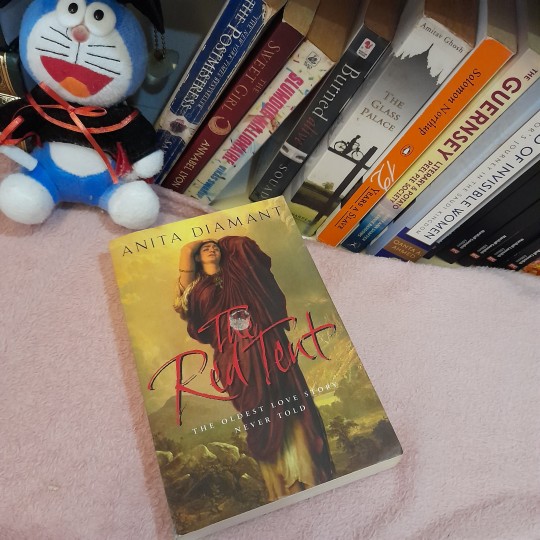
Title: The Red Tent
Score: 4.2/5.0 (Goodreads.com)
Price: RM10
Postage: +RM6 (PENINSULAR MALAYSIA) or RM15 (SABAH/SARAWAK)
.
Summary/Introduction:
.
The Red Tent is a biblical-fiction novel, told in a first-person narrative that tells the story of Dinah, daughter of Jacob and Leah, sister of Joseph. She is a minor character in the Bible, but the author has broadened her story.
.
---
• Check out '[Preloved] The Red Tent - Anita Diamant', available at RM10 on #Carousell:
#the red tent#anita diamant#english novel#paperback#biblical fiction#historical fiction#drama#tragic#dinah#the family of Jacob#goodreads#preloved books#carousell
1 note
·
View note
Quote
It was one of those perfect fall days when the air is cool enough to wake you up but the sun is also kissing your face.
Anita Diamant
3 notes
·
View notes
Photo

Book review - Beneath a Marble Sky by John Shors
So this is basically the story of the Taj Mahal as told by princess Jahanara Begum, the favorite daughter of emperor Shah Jahan, who built the mausoleum for his wife Mumtaz Mahal after she died giving birth.
The story begins with Jahanara telling her two granddaughters the unknown-to-them story of her life. She grew up with her mother and other important women in the Red Fort, envying the love between her two parents and wondering if she would ever have the same. Both parents adored her and the other siblings, and she wasn’t treated vastly differently from her brothers. As she grew older, she often counseled her father along with her mother and favorite brother Dara, who was to be the appointed heir. Dara enjoyed studying philosophy and was more interested in promoting peace between the ruling Muslims and Hindu majority than warring, unlike his younger brother Aurangzeb, who from a young age was jealous and hateful by nature.
Aurangzeb was the only major blight of Jahanara’s childhood, as he liked to torment her and her friends Ladli and Nizam. Jahanara often warned Dara that Aurangzeb would one day betray them to try to seize control of the empire, but Dara preferred to ignore the threat as he loved his brother.
Jahanara is then married to rich man who disagrees with her father’s policies in an attempt to promote a stronger alliance. She doesn't love him and comes to hate him, but doesn’t tell her father about how he mistreats her because she believed that like her mother, she had a duty to empire that outweighed her personal wishes. When her mother dies giving birth to her 14th child, Shah Jahan orders a brilliant mausoleum to built and puts Jahanara in charge of overseeing it, allowing her to spend most of her time back at the Red Fort.
Her life changes for the better when she falls in love and is allowed to secretly pursue that love with her father’s blessing. However, shortly after the completion of the Taj Mahal, the life of her and her family is endangered when Aurangzeb kills their brothers, imprisons their father, and appoints himself emperor. The rest of the story is how Jahanara tries to escape Aurangzeb while protecting her lover and daughter, her father, and her friends.
This was a good book, but there were a lot of things that were flat-out historically inaccurate as opposed to just the author filling in some unknown gaps with his own version. For example, in real life princess Jahanara was never married, and although her brother Aurangzeb did imprison her father for a time, him and Jahanara eventually reconciled (at least on paper) and he restored many of her titles, while in this book he wanted her dead. The story is good as story, but I would just recommend reading up on the known version of things afterwards. The writing style is similar to that of Anita Diamant’s who wrote The Red Tent, so if anyone's enjoyed that they’ll probably like this.
#beneath a marble sky#john shors#novel#fiction#historical fiction#historical romance#bookblr#book review#book
18 notes
·
View notes
Photo




Some amazing books by best-selling author and witty Jewish feminist, Anita Diamant - available in the Mayyim Hayyim store! Click below to purchase!
http://www.mayyimhayyim.org/Store/Books-By-Anita-Diamant
#mayyim hayyim#mikveh#mikvah#anita diamant#jewish author#jewish woman#jewish feminist#jewish mother#jewish children#jewish wedding#conversion
15 notes
·
View notes